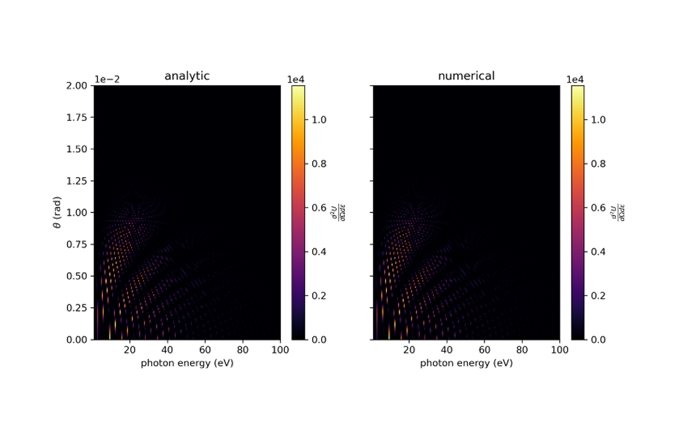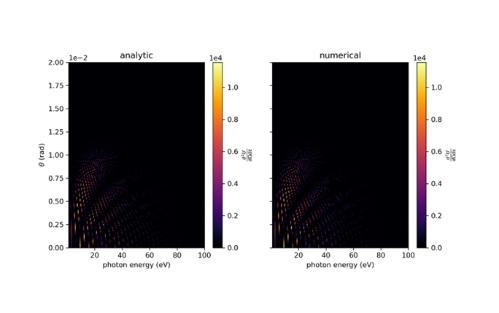Monika Yadav presented her research at the Advanced Accelerator Concept Seminar Series

LIV.DAT student Monika Yadav’s research project is focused on “Betatron radiation from underdense plasma”. Her work is split between the University of Liverpool and the University of California, Los Angeles (USA). After a first year in Liverpool, she is currently spending her 2nd and 3rd year of her PhD in California.
On the 6th of January 2021, Monika gave an invited talk at Advanced Accelerator Concepts Seminar Series (AAC) 2020 on “Modeling betatron radiation for the E-310 Trojan Horse”. She was one of 6 students selected to give a talk for Working Group 4: Beam-Driven Acceleration. Together with Claire Hansel, an undergraduate student at UCLA, she submitted two posters of which the presentations can be found via the links below:
-Modeling betatron radiation diagnostics for E310 - Trojan Horse
-Plasma Wakefield Accelerators with Ion Motion and The E-314 Experiment at FACET-II

Double differential spectrum for a single particle in a strong undulator. Demonstrates agreement between Liénard–Wiechert code (right) and analytical expressions (left). Image: AAC 2020 Monika Yadav et.al
As the in-person AAC workshop was cancelled because of the pandemic, an online seminar series is being held in its place, with the local organizing committee being Lawrence Berkeley National Laboratory. The online AAC Seminar Series provides an opportunity for the accelerator community to present and discuss the latest advanced particle accelerator research and development. The Seminar Series is held each Wednesday morning at 8:30 PST and start on November 18th 2020. The first session was an introduction and tutorial. Each subsequent week’s session is dedicated to a particular working group, of which there are seven. Each session has two plenary talks, followed by invited talks given by junior researchers as well as a discussion. The seminars are attended by hundreds of researchers from across the world. Further information about the AAC Seminar Series, including poster presentations and how to register, can be found here.
In her talk, Monika explained the background of Trojan Horse and discussed the E-210 Experiment at FACET (SLAC), which was a proof-of-concept demonstration of beam generation using plasma photocathode. The upcoming E-310 experiment at FACET-II will be the next step demonstrating creation of high brightness beams. She also explained how betatron radiation diagnostics can be done as well as the reconstruction of the beam parameters from radiation, using the EM algorithm and machine learning. Monika further discussed three models that they examined for radiation: particle tracking code which computes radiation from Liénard–Wiechert potentials; a Quasi-Static Particle in cell code which computes radiation from Liénard–Wiechert potentials; and a full PIC code which computed radiation with a Monte-Carlo QED method.
Proceeding papers for both of the topics presented as well as a recording of Monika’s talk will be available via the AAC website soon. The quality of the presented projects is very high and many of the presenters are international researchers from a wide range of countries including Switzerland, the UK and the USA.